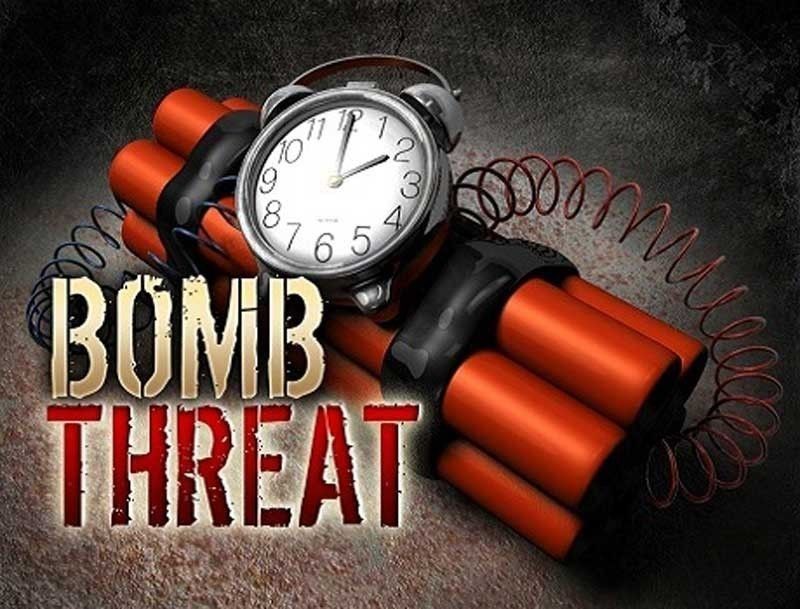Hoax bomb threats and why you should never make one

MANILA, Philippines — In September last year, two bomb threats rocked the National Teachers College, prompting a suspension of classes.
The threat sent through an anonymous text was later on determined as a hoax and was from an education student named Lezlie Ann Orteza.
The student, eventually nabbed for the issuance of the bomb threat, admitted that she just texted it to the school administration because she failed to review for an exam. She said she was just angry because of students who were creating noise.
“It was very toxic. I just thought I couldn’t take the exam,” Orteza said.
READ: Student arrested for bomb threats at the National Teachers College
This was not the singular incident that a school in Metro Manila received a bomb threat and disrupted school operations.
It has become a trend in schools.
On Thursday, Mapua University suspended classes and work in its Manila and Makati campuses due to a reported bomb threat.
READ: Classes, work on Mapua campuses suspended over bomb threat
The threat received by student council officers were later on determined to be a hoax.
The Professional Regulation Commission office in Manila also temporarily suspended its operations last month due to a false bomb scare.
How to handle bomb scares
Major General Guillermo Eleazar, the National Capital Region Police Office chief established a protocol on how to respond to bomb threats last May in preparation for the school opening last June.
He, however, advised the public to remain calm during one since most of the previous bomb threats in Metro Manila turned out to be hoaxes.
In case of bomb alerts, Eleazar said the NCRPO already has a designated contact marshal for different schools.
The NCRPO also tasked explosive ordnance disposal units to secure schools in Metro Manila.
The Philippine National Police in 2014 also issued ways on how one can handle bomb threats.
It said that threats received in schools shall be immediately reported to the head of security, the principal.
The receiver of the threat is also advised to communicate with the sender to gather more information on the reported explosive.
Threats received through writing shall be turned over to the police to help them in their investigation.
The PNP advised academic institutions to resume operations if bomb threats turned out to be fraudulent “to render the bomb threat ineffective and reduce the chances of a similar threat happening again.”
1980 presidential decree punishes fake bomb threat senders
In October 1980, President Ferdinand Marcos signed Presidential Decree 1727, which declared the malicious dissemination of false information of any threat concerning bombs or explosives as unlawful.
“WHEREAS, in the wake of recent bombings, arsons, and other terroristic acts committed by radicals and other lawless elements in the country, such radical and lawless elements, and other persons popularly known or described as "pranksters", having been conveying, propagating or otherwise disseminating false information or willfully making threats regarding the alleged presence of bombs, explosives, incendiary devices, or any similar device or means of destruction in buildings, tenements, and other places, by word of mouth or through the use of telephones, telegraph, the mail, and other means of communication, for the purpose of causing or creating public confusion and disorder," the presidential decree read.
Section 2 of the presidential decree states that any offender may face imprisonment of not more than five years or a fine of not more than P40,000 or both, at the discretion of the court.
It added “that any offender will be arrested and will not be entitled to bail pending trial by military courts that would have jurisdiction over such cases.”
The Philippines no longer has military courts for cases involving civilians, but the prohibition against bomb threats is still in place.
The presidential decree is now informally called the “Anti-Bomb Joke Law.”
- Latest
- Trending





























